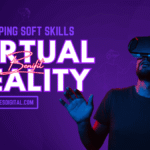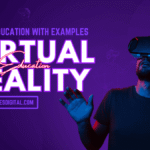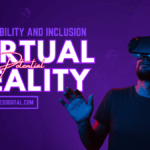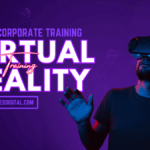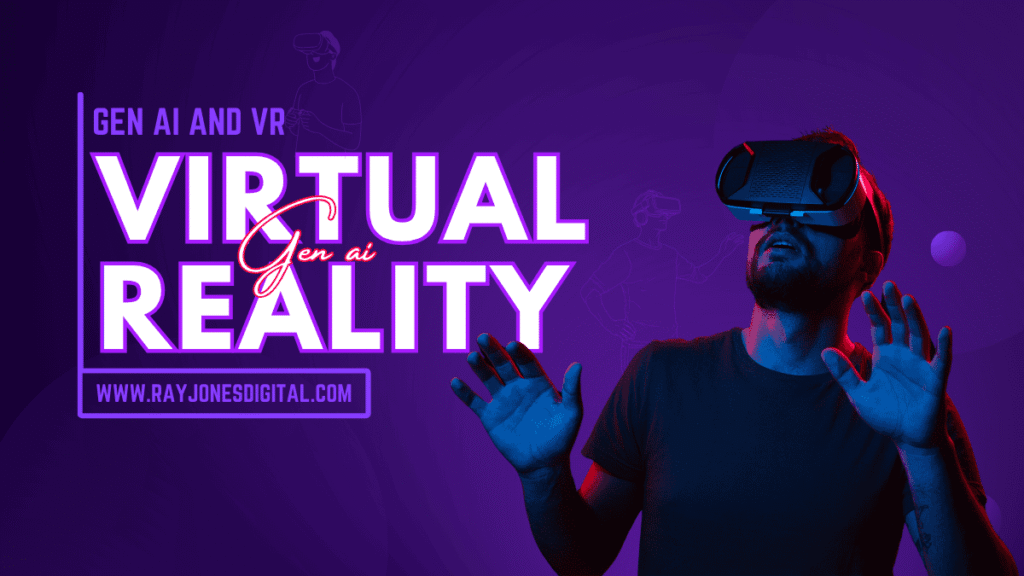
Soft skills development has long been the Achilles’ heel of education systems worldwide. While technical competencies can be taught through textbooks and lectures, skills like leadership, empathy, and communication require practice in realistic scenarios. The convergence of Gen AI and VR is creating unprecedented opportunities for immersive soft skills training that was previously impossible to deliver at scale.
This technological fusion is transforming how we approach interpersonal skill development, offering learners safe spaces to practice difficult conversations, navigate complex social dynamics, and build emotional intelligence. From university campuses to corporate training rooms, AI-powered VR environments are becoming the new frontier for human skills development.
The Soft Skills Challenge in Traditional Education
Traditional educational approaches to soft skills development face significant limitations. Role-playing exercises with classmates lack authenticity, case studies remain theoretical, and real-world practice opportunities are limited and inconsistent. Students might understand leadership principles intellectually but struggle to apply them when facing actual workplace challenges.
The subjective nature of soft skills makes assessment particularly difficult. How do you measure empathy or evaluate communication effectiveness? Traditional methods rely heavily on self-reporting and peer feedback, which can be unreliable and biased.
Furthermore, creating diverse scenarios for soft skills practice requires extensive resources and coordination. Students need exposure to various personalities, cultural backgrounds, and challenging situations to develop well-rounded interpersonal abilities. Traditional educational settings struggle to provide this diversity consistently.
How AI Enhances VR Learning Environments
Intelligent Virtual Characters
Generative AI brings virtual characters to life with unprecedented realism and complexity. These AI-powered avatars can engage in natural conversations, respond dynamically to learner behaviour, and adapt their personalities based on training scenarios. Unlike scripted characters, AI avatars can improvise, challenge assumptions, and provide unique interactions each time.
AI characters can simulate diverse personality types, from difficult customers to supportive colleagues. They can exhibit emotional responses, display cultural nuances, and present complex interpersonal challenges that mirror real-world situations. This diversity ensures learners encounter the full spectrum of human behaviour during their training.
The technology enables characters to remember previous interactions and build relationships over time. This continuity creates more realistic training experiences where learners must maintain professional relationships and navigate ongoing workplace dynamics.
Personalised Learning Pathways
AI algorithms analyse learner behaviour, identifying strengths and areas for improvement in real-time. This analysis enables personalised training pathways that adapt to individual learning styles and pace. Some students might need more practice with conflict resolution, while others require additional work on presentation skills.
The system can adjust scenario difficulty based on learner performance, ensuring optimal challenge levels that promote growth without overwhelming students. This dynamic adaptation maintains engagement and prevents frustration or boredom.
AI-powered analytics provide detailed insights into learner progress, tracking improvements in specific soft skills over time. These metrics help educators understand which training approaches are most effective and where additional support is needed.
Real-Time Feedback and Coaching
AI systems can analyse verbal and non-verbal communication patterns, providing immediate feedback on tone, body language, and conversation flow. This real-time coaching helps learners understand the impact of their communication choices and develop more effective interpersonal strategies.
The technology can identify subtle behavioural patterns that human instructors might miss, such as unconscious bias in decision-making or consistent avoidance of certain types of conversations. This insight enables more targeted skill development.
AI coaches can provide consistent feedback across all learners, ensuring standardised assessment criteria and reducing subjectivity in evaluation. This consistency helps maintain training quality and enables more reliable skill measurement.
Transforming Soft Skills Training Across Sectors
Healthcare: Building Empathy and Communication Skills
Medical schools are implementing AI-powered VR systems to help students develop bedside manner and patient communication skills. Virtual patients with diverse backgrounds and medical conditions provide realistic practice scenarios for difficult conversations.
Students can practice delivering bad news, handling emotional family members, and managing end-of-life discussions in safe environments. AI patients respond authentically to different communication approaches, helping students understand how their words and manner affect patient experience.
The technology enables training for rare or sensitive situations that students might encounter infrequently during clinical rotations. This exposure builds confidence and competence before students interact with real patients.
Business Education: Leadership and Management Skills
Business schools use AI-powered VR environments to simulate complex organisational scenarios where students must navigate office politics, manage team conflicts, and lead change initiatives. Virtual employees with distinct personalities and motivations create realistic management challenges.
Students practice delivering performance reviews, conducting difficult conversations, and motivating diverse teams. AI characters respond to different leadership styles, showing students how their approaches affect team dynamics and productivity.
The technology enables exploration of various management scenarios, from startup environments to multinational corporations. This exposure helps students understand how leadership requirements change across different organisational contexts.
Corporate Training: Professional Development
Companies are adopting AI-powered VR for employee development programmes, particularly for managers and customer service representatives. Virtual scenarios simulate challenging workplace situations, from handling customer complaints to managing team conflicts.
Sales teams practice complex negotiations with AI prospects who present realistic objections and buying concerns. This practice builds confidence and improves performance without risking real business relationships.
The technology enables training for sensitive situations like harassment prevention, diversity and inclusion, and ethical decision-making. Virtual scenarios provide safe spaces to explore these topics and practice appropriate responses.
The Role of Emotional Intelligence in AI-VR Training
Understanding Emotional Cues
AI systems are becoming increasingly sophisticated at recognising and responding to emotional states. Virtual characters can display subtle emotional indicators and respond appropriately to learner emotional cues, creating more authentic interpersonal interactions.
This emotional intelligence enables training scenarios that focus specifically on emotional regulation, empathy development, and social awareness. Learners can practice reading emotional signals and responding appropriately to various emotional states.
The technology helps develop emotional intelligence by providing immediate feedback on emotional responses and their effectiveness in different situations. This awareness builds emotional competence and interpersonal effectiveness.
Cultural Competence Training
AI-powered virtual characters can represent diverse cultural backgrounds, helping learners develop cultural competence and cross-cultural communication skills. These characters exhibit authentic cultural behaviours and communication styles, providing realistic diversity training.
Students can practice navigating cultural differences, avoiding unconscious bias, and building inclusive environments. The technology enables exploration of sensitive cultural topics in safe, controlled environments.
This cultural training is particularly valuable for students and professionals working in increasingly diverse and globalised environments. The experience builds cultural awareness and reduces prejudice through positive virtual interactions.
Measuring Success in AI-VR Soft Skills Training
Behavioural Analytics and Assessment
AI systems can track detailed behavioural metrics during training sessions, measuring everything from response times to conversation patterns. This data provides objective insights into soft skills development that traditional assessment methods cannot capture.
The technology can identify specific behavioural improvements over time, such as increased active listening or more effective conflict resolution strategies. These metrics help validate training effectiveness and guide programme improvements.
Behavioural data can be compared across learners to identify best practices and common challenges. This analysis informs training design and helps educators understand which approaches are most effective.
Long-Term Impact Measurement
AI-powered systems can track learner progress over extended periods, measuring skill retention and application in real-world contexts. This longitudinal data provides valuable insights into training effectiveness and long-term learning outcomes.
The technology enables follow-up assessments that measure whether skills learned in virtual environments transfer to actual workplace performance. This validation is crucial for demonstrating training value and return on investment.
Continuous monitoring helps identify when refresher training is needed and which skills require ongoing development. This ongoing support ensures sustained skill improvement rather than temporary training effects.
Overcoming Implementation Challenges
Technical Infrastructure Requirements
Implementing AI-powered VR systems requires significant technological infrastructure, including high-performance computing resources and reliable internet connectivity. Educational institutions must invest in robust technical support systems to maintain these platforms effectively.
The complexity of AI-VR systems requires specialised technical expertise for implementation and maintenance. Institutions need skilled IT professionals who understand both AI technologies and educational applications.
Regular software updates and system maintenance are essential for optimal performance. Institutions must plan for ongoing technical support costs and ensure system reliability for consistent training delivery.
Content Development and Customisation
Creating effective AI-powered VR training content requires collaboration between technologists, educators, and subject matter experts. This interdisciplinary approach ensures training scenarios are both technically sophisticated and pedagogically sound.
Customising content for specific educational objectives and learner populations requires significant time and expertise. Institutions must balance standardised solutions with customisation needs to achieve optimal learning outcomes.
Regular content updates ensure training scenarios remain current and relevant. This ongoing development requires sustained commitment and resource allocation from educational institutions.
Ethical Considerations and Privacy
AI-powered training systems collect extensive data about learner behaviour, raising important privacy and ethical concerns. Institutions must implement robust data protection measures and ensure transparent data use policies.
The potential for AI bias in training scenarios requires careful monitoring and regular assessment. Training content must be regularly reviewed to ensure fair representation and avoid perpetuating stereotypes or prejudices.
Ethical guidelines for AI-powered education are still developing, requiring institutions to establish their own standards and best practices. This responsibility requires ongoing attention and adaptation as technology evolves.
Preparing for the Future of Soft Skills Education
The convergence of AI and VR represents a paradigm shift in how we approach soft skills development. These technologies offer unprecedented opportunities to create realistic, personalised, and scalable training experiences that were previously impossible to deliver.
Success in implementing these technologies requires careful planning, significant investment, and ongoing commitment to quality and effectiveness. Educational institutions and organisations must balance technological innovation with pedagogical excellence to achieve optimal learning outcomes.
The future of soft skills training will likely involve increasingly sophisticated AI systems that can adapt to individual learners and provide more nuanced feedback. As these technologies mature, they will become more accessible and effective, transforming how we develop the human skills essential for success in an interconnected world.
The integration of AI and VR in soft skills training represents more than technological advancement—it signals a fundamental shift towards more experiential, personalised, and effective education. As we continue to explore these possibilities, we move closer to educational systems that truly prepare learners for the complex interpersonal challenges of modern life and work.

I am Ray Jones Digital
My current occupations: a Digital Marketer, Local SEO expert, Link Builder, and WordPress SEO specialist. Shopify SEO, Ecommerce Store Management, and HTML & WordPress Developer I have been practicing the above mentioned services for more than 10 years now As an SEO expert working with your ongoing projects.
